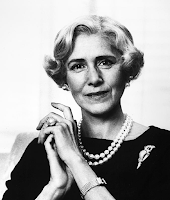Russell Kirk, a prominent figure in conservative thought, was a staunch advocate for a limited and cautious role of government in the lives of individuals. His views on the relationship between the individual and government were deeply rooted in traditionalist and conservative principles. Kirk believed that government should serve as a protector of ordered liberty and should respect the natural rights and moral values of individuals. Here, we explore some of Russell Kirk's key beliefs on this subject, supported by relevant quotes from his writings.
The Primacy of the Individual:
Russell Kirk firmly believed in the intrinsic worth and uniqueness of each individual. He recognized that individuals possessed natural rights and should not be subjugated to the whims of an overbearing government. In his words: "The first and most important element in a social order is the soul of man, the unique personality, the individual, the 'I' - whom no collectivity must suppress."
Limited Government:
Kirk was a proponent of limited government, emphasizing that the state should be restrained and circumspect in its exercise of power. He warned against the dangers of an expansive government infringing upon individual freedoms: "In essence, the State is the great fictitious entity by which everyone seeks to live at the expense of everyone else."
Preservation of Tradition and Custom:
Kirk believed that government should uphold and protect the traditions and customs of society, as these were the foundations of a stable and just order. He argued that the accumulation of wisdom found in tradition served as a guide for both individuals and the state: "True conservatism means preserving the things that have been found to be good and true in the past. It is a far better thing to conserve than to destroy, and to build upon rather than to reject the heritage of our forebears."
Moral and Ethical Foundations:
For Kirk, government should have a moral and ethical basis. He asserted that the state should uphold a common moral order that reflected the values of the society it governed: "Political problems, at bottom, are religious and moral problems."
Skepticism of Centralized Power:
Kirk was skeptical of centralized and concentrated political power, fearing that it could lead to tyranny. He advocated for the diffusion of power and the preservation of local institutions and customs: "There is no surer way to make a man your enemy than to tell him you disagree with him about the greatest of things."
In summary, Russell Kirk's beliefs on the relationship between the individual and government underscored the importance of individual rights, limited government, the preservation of tradition, moral foundations, and a healthy skepticism of centralized power. His ideas continue to be influential in shaping conservative thought, emphasizing the value of personal liberty and the importance of a just and restrained government in preserving the well-being and freedom of individuals.















